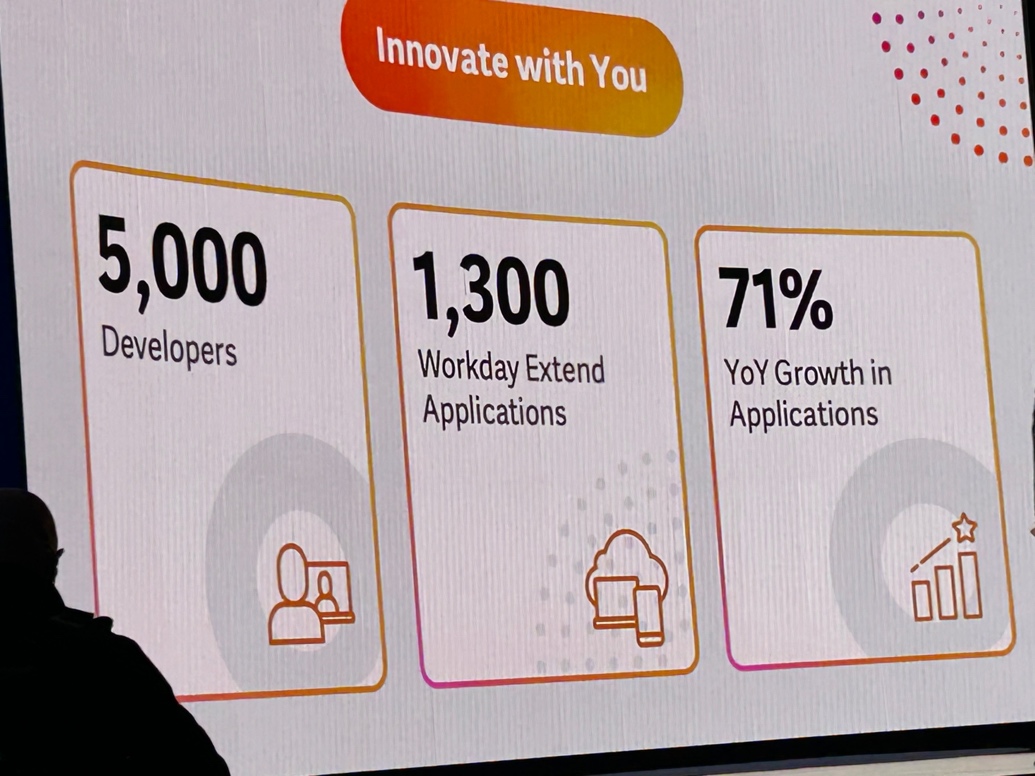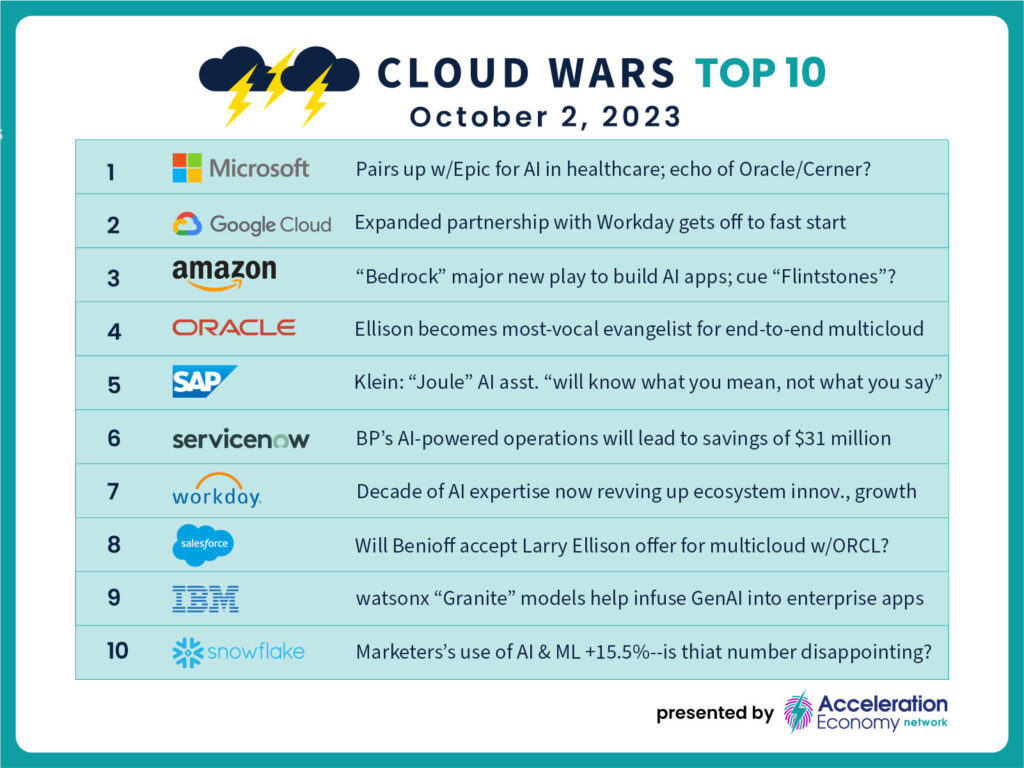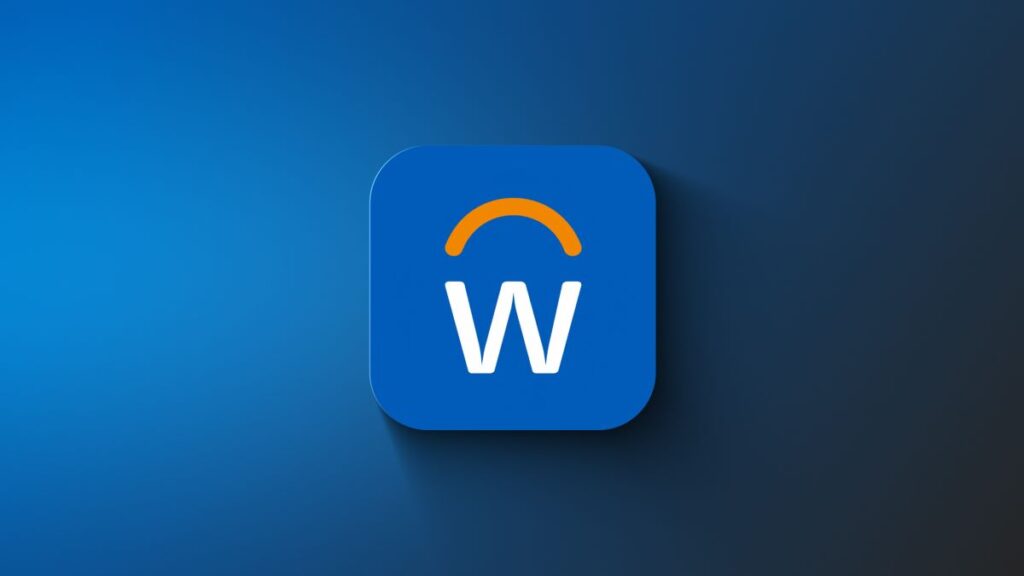
As businesses race to offer AI-powered products and services, Workday has launched two new programs to drive co-creation with customers and its rapidly growing partners ecosystem.
Both programs are centered on the company’s Workday Extend platform and are designed to accelerate the development of new generative artificial intelligence (GenAI) capabilities and solutions that, while not directly created by Workday, are fully compatible with its technologies and its standards for responsibility and safety.
Here’s a snapshot of these two impressive new offerings from Workday:
AI Marketplace “aims to help Workday customers harness the power of generative AI and other cutting-edge technologies to the fullest extent by bringing the best of Workday AI and solutions from third-party partners together in one place,” the company said in a press release. “The marketplace will feature AI and ML apps that integrate with Workday data via APIs, as well as apps built through Workday Extend using Workday-trained large language models.”
In its early stages, the AI Marketplace has 15 partners in place — including AWS — and Workday will work very closely with them to ensure the third-party GenAI apps meet Workday’s strict standards for quality, security, responsibility, and privacy.
AI Gateway gives developers a “continuous pipeline of AI-powered capabilities,” according to Jay Wieczorkowski, Workday’s senior director, product, for the Extend Platform. “So as we continue to innovate with AI and ML, the new AI Gateway allows our entire developer ecosystem to keep advancing and innovating right along with us.”
The rollout of these powerful new programs comes as Workday is experiencing a huge growth in apps and solutions developed not by Workday itself but by its customers and partners, as shown on this screenshot from co-CEO Carl Eschenbach’s keynote:

While that 71% increase in year-over-year growth in applications built by customers and partners is driven from a relatively small base, the trend is unmistakable: Workday’s customers are shifting from being purely consumers of enterprise technology to being co-creators via the Extend platform.
And as the buildout of end-to-end digital capabilities accelerates, it’s clear that no enterprise-software vendor — no matter how big or how ambitious — can provide everything those digital-striver customers will need.
For ecosystem partners and tech-savvy customers, that creates an excellent opportunity to build tools and solutions and even applications that conform to the policies and standards of the software vendor on whose platform those apps are being built.

These two new programs centered around Workday Extend are perfect examples of what’s behind this new trend.
“Target has built more than 10 apps on Extend, including a very interesting one for their employee-discount program,” Wieczorkowski told me during a conversation at Rising. “The entire retail industry is so competitive for talent, they have to find ways to differentiate themselves. The Target developer team is very proud of how this very specific app lets prospective employees understand the employee-discount perk, and it really helps Target stand out.”
During Eschenbach’s keynote — and bear in mind that while he and cofounder Aneel Bhusri are currently co-CEOs, Bhusri will step out of that role early next year, making Eschenbach the sole CEO while Bhusri continues to serve as chairman — he emphasized that Workday’s ecosystem will be much more strategically aligned with the company’s growth initiatives. Eschenbach said he is amazed that Workday has achieved a $7-billion annualized run rate primarily on its own, and that the greater emphasis on the ecosystem will provide a big boost for Workday’s growth.
Gain insight into the way Bob Evans builds and updates the Cloud Wars Top 10 ranking, as well as how C-suite executives use the list to inform strategic cloud purchase decisions. That’s available exclusively through the Acceleration Economy Cloud Wars Top 10 Course.









